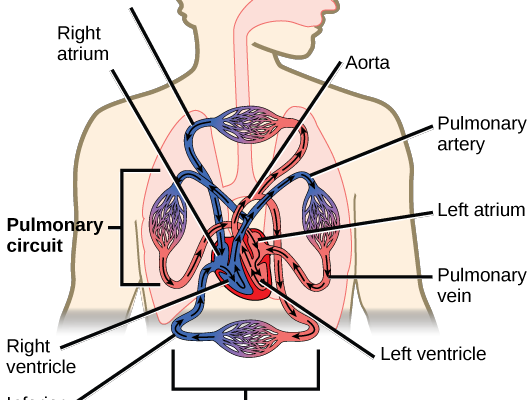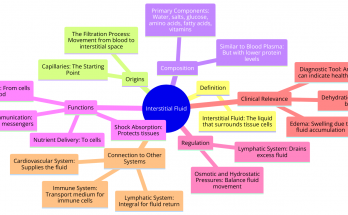Short note on Circulatory System
Definition
The Circulatory system also known as the Cardiovascular System is a network of organs and vessels that work together to transport blood, oxygen and nutrients to all parts of the body.
Important Organs of Circulatory System
Heart – The heart is a muscular organ located in the chest that pumps blood throughout the body. It is responsible for maintaining blood pressure and circulation.
Blood Vessels – Blood vessels are the channels through which blood is transported throughout the body. There are three types of blood vessels – Arteries, Veins and Capillaries.
Blood – Blood is a specialised fluid that carries oxygen, nutrients, hormones and waste products throughout the body. It is composed of red blood cells, white blood cells, plasma, and platelets.
Functions of Circulatory System
- Transport – The circulatory system is responsible for transporting oxygen, nutrients, hormones and waste products throughout the body.
- Protection – The circulatory system helps to protect the body from infections and diseases by transporting white blood cells and antibodies to fight off pathogens.
- Regulation – The circulatory system plays a role in regulating body temperature, pH balance and water balance.
- Acts as an interface for cell-to-cell interaction.
- Help repair the damaged tissue.
Also Check – Short Note on Immune System
Also Check – 13 Important Function of Heart
Also Check – Describe the Flow of Blood through the Heart of Human Beings


4 Comments on “What is Circulatory System ? – Short Answer”